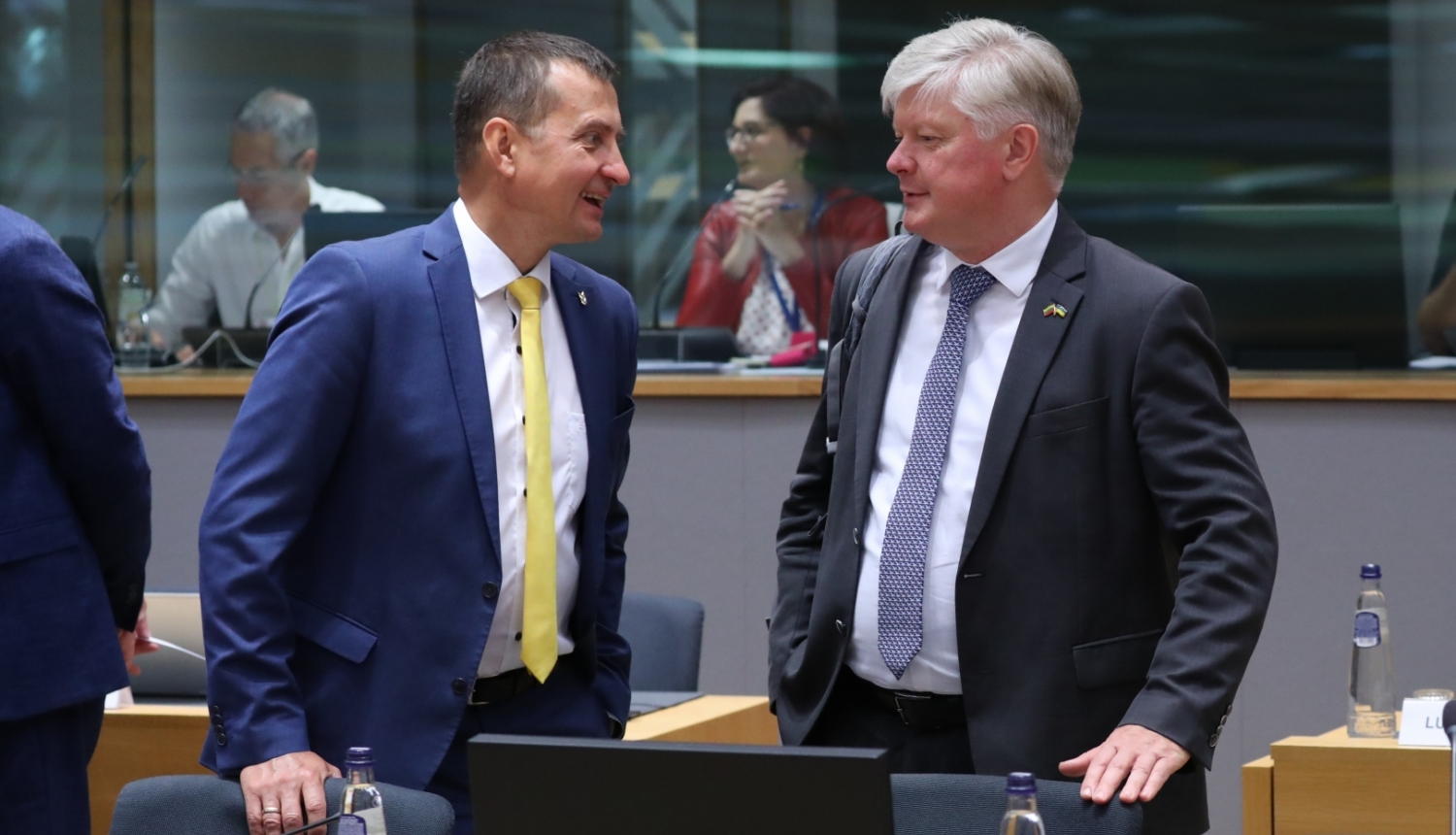On Monday, July 15, Minister of Agriculture Armands Krauze participated in the EU Agriculture and Fisheries Council meeting in Brussels. The meeting addressed issues concerning the viability of rural areas and EU external trade and reviewed the main priorities of the Hungarian presidency.
At the meeting, Armands Krauze emphasized that efforts both at the EU and national levels must be focused on ensuring that living conditions in rural areas are favorable and attractive. This includes providing necessary infrastructure and basic services, such as educational opportunities, and especially job creation.
Armands Krauze positively viewed the opportunities provided by the Common Agricultural Policy (CAP) funding – both for specific agricultural development and for supporting entrepreneurship and active rural communities. He also suggested that the potential from other EU funds should be more actively utilized to bring about significant improvements in infrastructure, job creation, and the overall economic environment.
In the context of CAP, implementing the LEADER approach has a major direct impact on rural development. Given the numerous challenges rural areas face, the mandatory investment amount for this approach should be increased, at least doubling it. Furthermore, the use of such community-driven local development approaches should be more actively promoted in the instruments of Cohesion Policy as well.
"Developing the viability of rural areas requires complex solutions from various policies to ensure not only CAP support for entrepreneurship and local initiatives but also the availability of necessary services in rural territories. Coordinated implementation of national policies is of particular importance," noted Armands Krauze.
Regarding the discussions on EU external trade issues, Armands Krauze highlighted the positive impact of free trade agreements, which provide broader export opportunities for EU producers. At the same time, the minister stressed that trade relations must be mutually beneficial, without jeopardizing the competitiveness of EU farmers compared to third-country importers. The EU must be able to respond effectively to rapidly changing geopolitical and economic situations, focusing on enhancing competitiveness and strengthening multilateral and bilateral partnerships to secure and sustain supply chains.
Furthermore, unwavering support for Ukraine must continue to foster its economic development and its ability to earn for its defense, without neglecting the protection of EU producers' interests.
The minister also emphasized at the council meeting that the EU must continue to restrict trade with the aggressor country Russia, repeatedly calling for increased tariffs on other agricultural and food products (including fruits, vegetables, and fish) imported into the EU from Russia.



